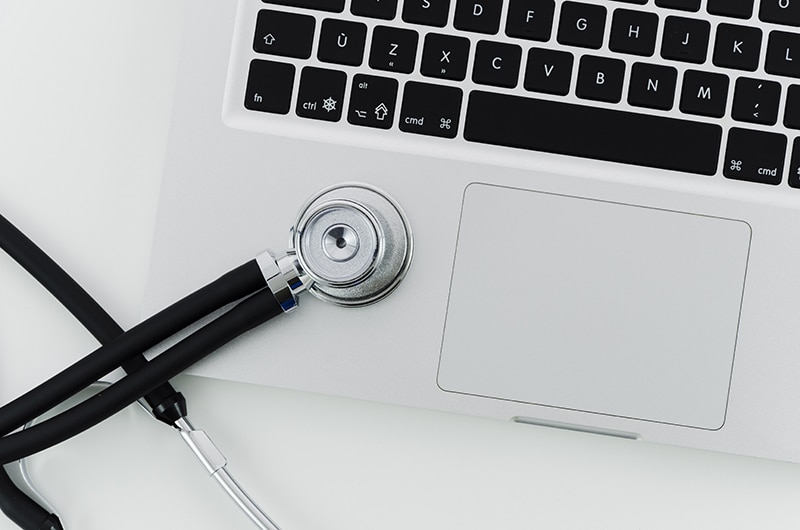
Table of Contents
The patient-provider relationship has become as the foundation of quality healthcare. The 21st Century Cures Act gave patients the right access to their electronic health record (EHR). Many studies report that patient access to their medical records can encourage them to collaborate with their provider and become active partners in their own healthcare. While medical transcription services can help physicians ensure accurate and timely EHR documentation, writing patient friendly notes is critical for building trust and knowledge, and improving the patient provider relationship. Also, physician language in patient health records can impact the quality of care that patients receive across the continuum of care.
Benefits of Patient Access to the EHR
Giving patients rapid and convenient to their personal health information can get patients and physicians on the same page. According to the Cures Act Final Rule, providers must be able to make eight types of information available to all patients, free of charge:
- Consultation notes
- Discharge summary notes
- History and physical
- Imaging narratives
- Laboratory report narratives
- Pathology report narratives
- Procedure notes
- Progress notes
So, patients now have electronic access to a broad spectrum of their medical data as well as physician notes.
Many studies have found that open notes drive better outcomes. A May 2021 Journal of General Internal Medicine study reported that 50 percent of clinicians who first tried clinical notes found that their patients took better care of themselves when given access. About three-quarters of providers said they saw better patient empowerment (patientengagementhit).
Trust, knowledge, regard, and loyalty are the key elements of the physician-patient relationship. Importantly, reports say that the patient-provider relationship is crucial to quality care. Sharing visit notes can contributes to patient-provider satisfaction in many ways:
- Improved patient education
- Improved patient engagement and empowerment
- Patients understand their care plans better and become active partners in their care
- Access to healthcare visits, test results, and treatment history empowers patients to better manage their own health
- Improves medication adherence and follow up on doctor visits
- Supports improved chronic care management
- Can lead to medical error detection and correction, contributing to improved patient safety
- Improves patient outcomes
However, the success of the Open Notes strategy depends on writing “good” open notes for a positive patient experience.
What are “Good” Open Notes?
A positive patient-provider relationship depends on empathy, strong communication, and shared decision-making. Open clinical notes that are empathic, informative, and rely on objective clinical information are most likely to yield a good patient experience according to PatientEngagementHIT.
The American Academy of Family Physicians (AAFP) observes that although the new law does not require physicians to change their note-writing style, some small modifications can be helpful, particularly when documenting potentially sensitive topics such as mental health, obesity, substance use disorder, sexual history, or spousal abuse. The AAFP says that for notes to be patient-friendly, they should ideally have the following four features:
- Transparency: The note should reflect the physician’s communication with the patient in the office. “There should be no surprises”, notes the AAFP.
- Minimal use of jargon and abbreviations: It’s likely that patients will misinterpret complicated medical terms. Such terms should be briefly defined or simplified. Here are a few examples of such terms: blood profile – series of blood tests; bradycardia – slow heartbeat; idiopathic – of unknown cause; subcutaneous under the skin, and prognosis – outlook, probable outcomes. Derogatory slang in patient notes can also have an impact on patients and family members. A 2021 JAMA network article noted that physicians should increase their awareness of stigmatizing language in patient records to ensure that their notes are informative and respectful.
- Highlight both the patient’s problems and the patient’s strengths and achievements: This is especially important in mental health records, as it will give patients a proper perspective of their illness as they deal with difficult behavioral changes.
- Describe behaviors and not label the patient or be judgmental: Using positive rather than judgemental language is important. The JAMA network study found that positive language was included in patient notes more often and more explicitly, including: (1) direct compliments, (2) expressions of approval, (3) expression of the physician’s own positive feelings toward the patient, (4) minimization of blame, (5) personalization, and (6) highlighting patient authority for their own decisions. The researchers noted that negative language in patient noted could potentially transmit bias and affect the quality of care that patients subsequently receive.
How a Medical Transcription Company can Help
“Over the past decade, this practice innovation-known as ‘open notes’- has spread widely, and today more than 50 million patients in the United States are offered access to their clinical notes,” observed OpenNotes leaders in the Annals of Internal Medicine. With healthcare challenges, such as an aging population, an increasing number of patients with chronic diseases and comorbidities, and the outbreak of infectious diseases like COVID-19, physicians are under constant pressure and time constraints to manage a higher workload. By enabling patients to become actively involved in their own care, providers can improve their relationship with them and provide better outcomes. Medical transcription outsourcing can play an important role in the open notes revolution by ensuring timely, error-free patient records, allowing providers focus on care, and freeing up internal resources for other core tasks.


